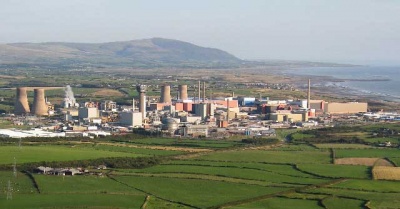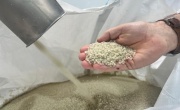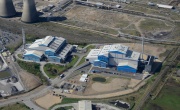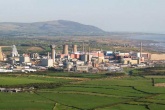Workers at Sellafield plant to ballot on strike action
Unite members working at the Sellafield nuclear reprocessing plant are being balloted for strike action following what Unite calls a ‘completely unacceptable’ 1.5 per cent pay offer that has been imposed by plant management. 
Unite’s 2,000 craft and staff members at the Cumbria site will begin to receive their ballot papers from Wednesday 13 September, with the ballot closing on Monday 2 October.
Sellafield Ltd - a Nuclear Decommissioning Authority (NDA) company - has imposed a 1.5 per cent pay offer from this month, backdated to 1 April.
Unite regional officer Graham Williams said: “With the RPI inflation rate running at 3.5 per cent and the CPI rate currently at 2.6 per cent - and projections by the end of 2017 of four per cent and three per cent plus respectively - our members can’t realistically accept a paltry 1.5 per cent pay rise.
“The imposed offer comes on the back of a 0.25 per cent increase last year. We calculate that if our members accepted this offer, taking into account last year’s minimal rise, our members would be £1,700 worse off in real terms, which is completely unacceptable as inflation takes off.
“We see the invisible hand of government guiding the management to impose this harsh austerity pay policy. Our members are highly skilled and trained professionals who are working in an extremely hazardous, arduous and security-vetted environment.
“They are carrying out important work in the national interest and it is imperative that the wage rates are maintained at a commensurate level to reflect their contribution to Sellafield’s continued success.
“The management now needs to come to the table and negotiate in a constructive manner, otherwise future strike action could bring Sellafield to a halt.”
This is not the first time Unite members working in the waste management sector have been balloted for strike action in recent months.
The long-running bin dispute in Birmingham between the council and Unite began back in June when Unite members voted overwhelmingly to strike following the council’s decision to make up to 120 employees redundant and amidst accusations of financial mismanagement on the part of the council. Weeks of strikes saw rubbish piling up in the streets before a brief suspension of industrial action in August following talks with the council, only for strike action to resume on 1 September.
Recycling Lives at Sellafield plant
The Sellafield plant was in the limelight again last month when it awarded a contract to process waste metal arising from fuel reprocessing and decommissioning to Recycling Lives, a waste management company that also functions as a social enterprise.
Recycling Lives, which helps people from some of the UK’s most marginalised communities to gain practical skills and employment in the recycling sector, will now provide a number of jobs in the area and open two new sites in Cumbria to manage waste collection and processing and expand its charitable activities.






